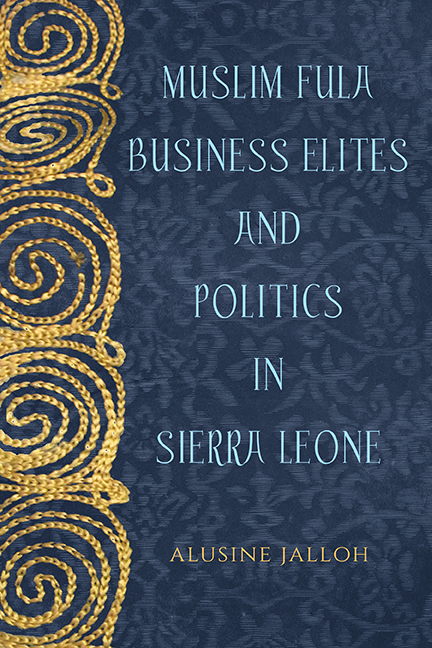Summary
This book investigates why and how Muslim Fula business elites participated in the postindependence politics of Sierra Leone. The Fula are one of the country's main entrepreneurial groups. Arguably, they are the most successful African business minority in this West African country, which has a long history of entrepreneurship, considerable agricultural potential, and vast resource endowment including diamonds, gold, and bauxite. The study focuses on elite Fula who engaged in import and export business enterprises, as well as large-scale retail trade, and were the highest-ranking members of the socioeconomic hierarchy of the Fula people. The Fula business class, comprising both immigrants and native-born individuals, was a component of a larger multi-ethnic business community. Others included Temne, Mende, Krio, and Mandingo, as well as non-African groups like Indians and Lebanese. As Muslims, the Fula played a major role in the spread of Islam through their proselytizing efforts and establishment of educational institutions. They are part of a larger Islamic presence in West Africa, extending from Senegal to Cameroon.
The book examines Fula political relationships with the Sierra Leone People's Party (SLPP) during the prime ministership of the brothers Dr. Milton A. S. Margai and Albert M. Margai, as well as with the All People's Congress (APC) under the leadership of Siaka P. Stevens and Joseph S. Momoh. The history recounted here begins in 1961, the year of Sierra Leone's independence, with the Milton Margai administration. But in 1964, Sir Albert became prime minister after the death of Sir Milton. Then, in 1967, military coups ensued after the electoral defeat of the Albert-led SLPP by the opposition APC. However, in 1968 the APC was reinstated in power with Stevens as prime minister, who became president in 1971 when the country adopted a republican constitution. In 1985 President Stevens retired and was succeeded by Major-General Joseph Momoh. This made history, as Sierra Leone became the first African country to hand over a civilian-constituted government to the military chief. The period under study concludes in 1992, when the Momoh presidency was ousted in a military coup d’état led by Captain Valentine E. M. Strasser. As a result, the National Provisional Ruling Council (NPRC) was established to govern the nation. This work examines previously overlooked actors and events in constructing a fresh narrative about the political and business history of twentieth-century Sierra Leone.
- Type
- Chapter
- Information
- Publisher: Boydell & BrewerPrint publication year: 2018

